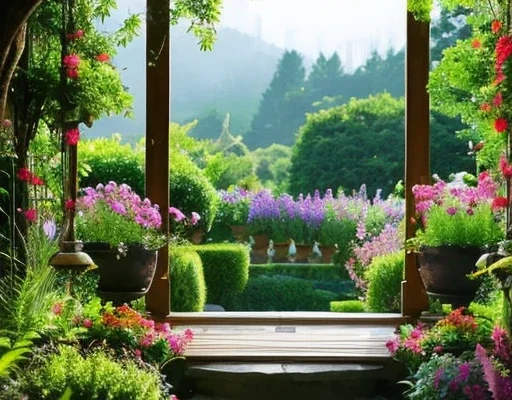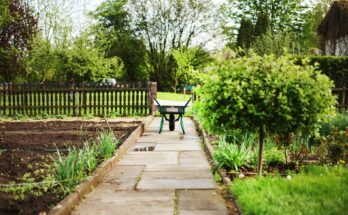Gardening during spring is a perfect way of receiving this year’s season, especially for those who love taking nature. It brings new forms, hues, fragrances, and vitality to your house. Does one have a large garden or just a balcony? A beautiful spring garden can be created easily. Here, you can understand the step-by-step process of its creation.
Why Create a Spring Garden?
Spring is a season of growth. A garden is a method of changing your outlook and the outlook of your place.
-
Bright Colors
Orchids, bluebells, lilies, roses, and many more blossoms give natural colors like red, yellow, white, pink, and orange to your home.
-
Fresh Produce
Growing vegetables and herbs means that you have fresh and organic foods to take into your kitchen.
-
Connection to Nature
Gardening is therapeutic. It assists you to relax and interact with the environment.
Choosing the Right Spot
Just like plants require certain conditions to grow in the garden, your backyard also requires some helping hand.
- Sunlight: Most plants found in spring should take about 6 – 8 hours of sunlight. Choose an area with good lighting conditions.
- Drainage: Ensure the soil drains well. It would help if you also avoided areas where water stagnates and gathers.
- Space: Balconies, for instance, can accommodate container gardens even though they may be as small as a single room.
Choosing Plants for Your Spring Landscape
Pick plants that will bloom during spring or grow fast during the mild seasons.
Flowers
- Tulips: A classic spring favorite. They come in many colors.
- Daffodils: Chunky, cheerful yellow flowers that are very facile to grow.
- Pansies: Perennial blooming plants that you can bring joy to your garden.
Vegetables
- Lettuce: Fast-growing tree and favors the cold climate.
- Radishes: Perfect for beginners. It takes only several weeks to start getting your plants to grow.
- Peas: It is one of the spring vegetables that can climb, declaring a lot of space on the household’s floor area.
Herbs
- Mint: Great for teas and cocktails.
- Basil: A versatile herb for cooking.
- Cilantro: Enhances new notes to foods.
Preparing the Soil
Good garden soil is as essential as the air that we breathe.
-
Test the Soil
Check the pH level. Most plants thrive well in slightly acidic to neutral pH of the soil.
-
Add Compost
Compost modifies the soil structure, which helps regulate its water relations and nutrient value.
-
Loosen the Soil
Dig the soil with a spade to occasion penetration of air and water.
Planting Your Spring Garden
Follow these steps to plant your garden:
-
Plan Your Layout
Neighbor plants should be grouped by sunlight and water.
-
Dig Holes
Plants seeds or seedlings in the prescription depth indicated on their packets or containers.
-
Water Immediately
Wash your plants immediately after transplanting to provide for better establishment.
Caring for Your Garden
Keep your garden healthy with these simple tips:
- Water Regularly: Feel the soil before you water the plant.
- Mulch: Supplements to include in the flower garden are the use of mulch to hold the soil moisture and discourage weed growth.
- Fertilize: Give it a balanced fertilizer to make it grow faster.
- Prune Dead Growth: Dead and faded blooms and foliage should be picked off.
Creative Spring Garden Ideas
Make your garden unique with these ideas:
- Container Gardens: Use pots or repurpose space where space is limited.
- Vertical Gardens: Where is space a concern? Hang the planters on the walls.
- Themed Gardens: Plant nectar to attract butterflies and build a butterfly garden.
- Edible Borders: Add flowers to herbs and vegetables.
Troubleshooting Common Issues
Gardens experience problems, but this can be resolved with a lot of simplicity.
- Pests: You may use natural products such as neem oil or companion planting.
- Overwatering: Recommend that pots have drainage holes or use less water in preparing your plant foods.
- Slow Growth: Some of the things you need to do are examine whether the plants are getting adequate sunlight or nutrients.
Conclusion
Growing a spring garden inside the house is always a pleasure. It adds beauty, freshness, and joy to your looking view. If you correctly choose the varieties of plants you wish in your garden, your garden will be productive all summer. If you start taking baby steps and learn to savor the process involved in repapering the house, you will one day wake up to an entirely new look on your home.
Also read about: Indoor Plants Guide for Home Improvement



One Comment on “How to Start a Spring Garden in Your Home”
Comments are closed.